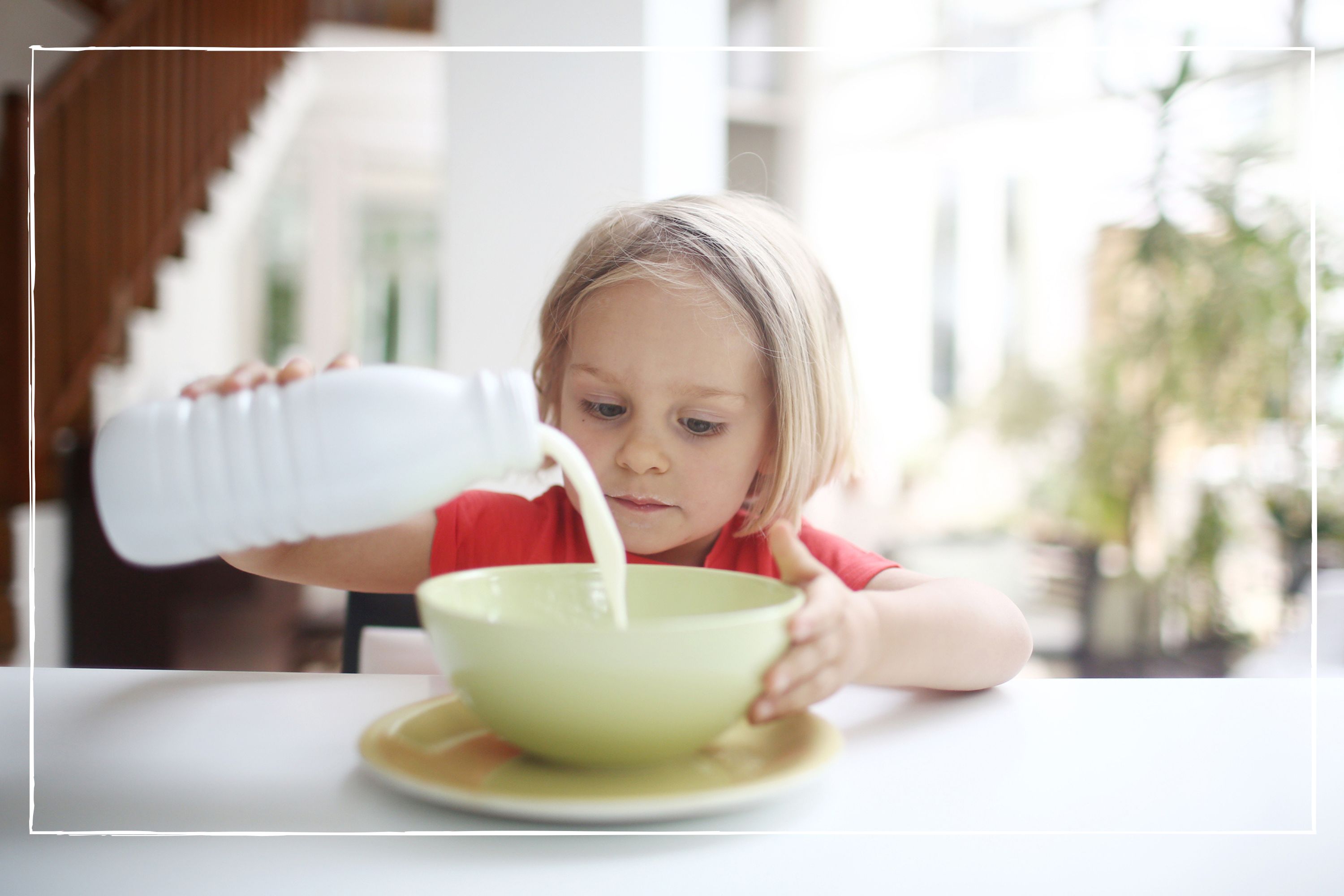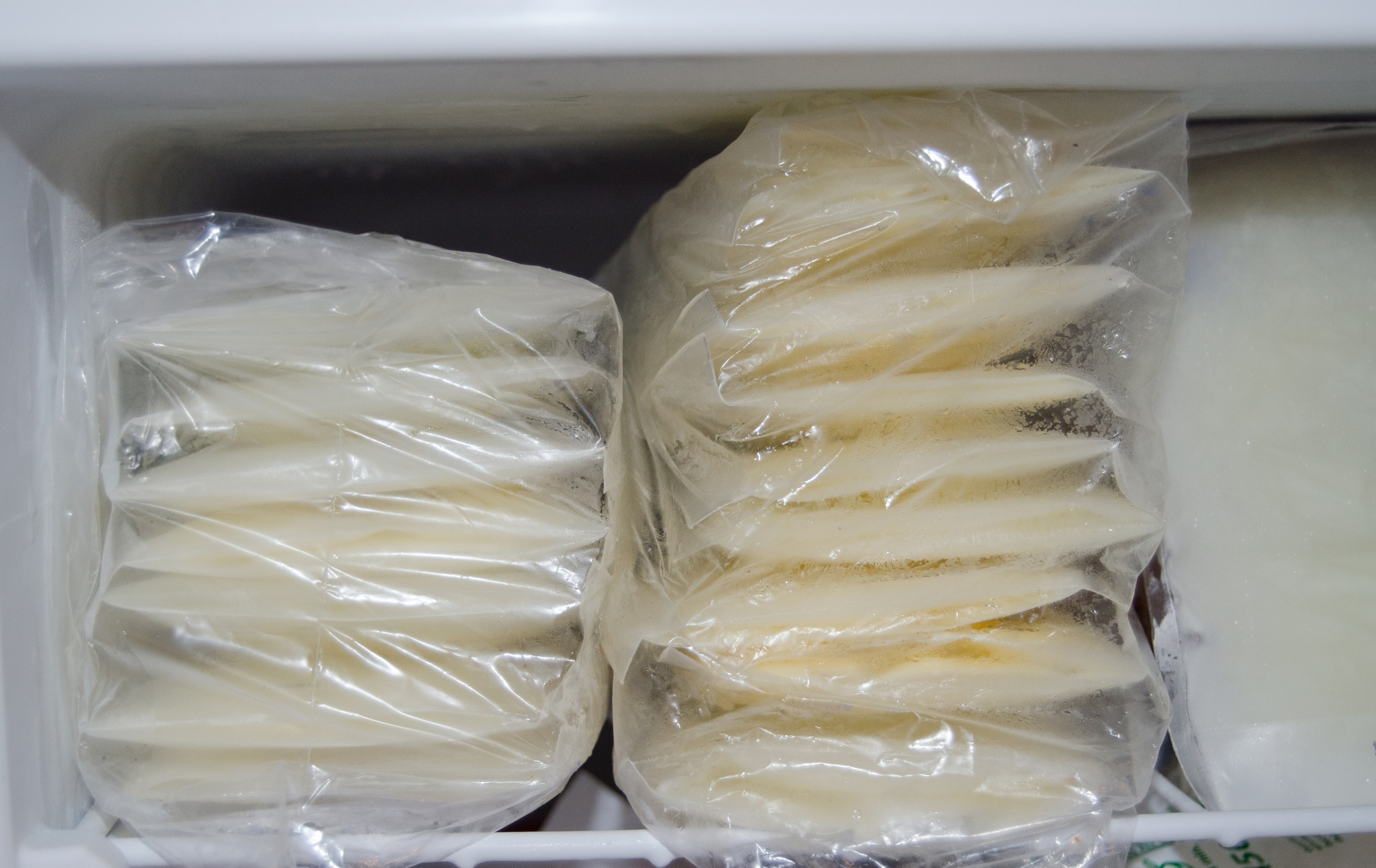Can you freeze milk to make it last longer and can you freeze breast milk too?
Wondering if you can freeze milk to reduce wastage and save money? Let's take a look

Every month, more than 5,000 people Google 'can you freeze milk?' and it's not surprising. Families have been spending months and months trying to save money on food and switching to cheaper supermarkets to help make ends meet.
Food prices have been rising across the board, and have been a major contributor to overall inflation. Milk is one of the products affected most by the cost of living crisis, the industry is massively affected by high gas prices, chronic worker shortages, and the skyrocketing price of cattle feed. The average price of a pint of milk has risen by almost 62% in two years, from 42p per pint in May 2021 to 68p per pint in May 2023, according to the Office of National Statistics. For the last 10 years, average prices were pretty stable at about 45p per pint, but this shot up in January 2022 as the cost of living crisis really took hold.
With families still facing high prices in the supermarket, it's important to understand how to reduce food waste to make your food shop (and money) go further.
We take a look at whether freezing milk can be the key to making it last longer, cutting down waste and ultimately saving you money.
Can you freeze milk?
Yes, you can freeze milk, and it's a key way to reduce wastage. You can freeze any kind of milk, whether it's skimmed, semi-skimmed or full fat and it's a good idea to freeze it as soon as you can, and definitely before the use-by date. You can also freeze nut milks, like almond milk.
If you are short on space, you can decant the milk into smaller airtight containers or freezer bags to make it easier to freeze. If you freeze in portion sizes, then you can ensure that you don't thaw more milk than you need to.
It's also a good idea not to fill any container to the top with milk, or freeze a full glass bottle or carton of milk, as it can expand when it freezes. If this happens, depending on the container, you run the risk of a milk explosion in the fridge.
Parenting advice, hot topics, best buys and family finance tips delivered straight to your inbox.
As long as the milk was in date by the time you froze it, it'll keep for up to 3-6 months, although it wqill be it's best when defrosted within a month of freezing. It can be a good idea to add a label with the date you froze it and a defrost by date.
Can you freeze breast milk?
Yes, you can freeze breast milk. According to the NHS, breast milk can be kept in the freezer for up to six months provided it's kept at -18°C or lower. It should be stored in a sterilized container or specialised breast milk storage bag, like these pre-sterilised storage bags from Amazon. It's a good idea to label it with the date it was produced to ensure you don't keep any milk for longer than it is safe.
Check out our guide if you need more advice on how to store breast milk.

Breast milk can be kept in the freezer for up to six months, and you can buy specialist breast milk storage bags that you can label with the date
Why does milk turn yellow when frozen?
Milk turns a bit yellow when it's frozen as the ingredients - water, fat, and protein - start to separate. You'll find milk with a higher fat content turns more yellow than skimmed varieties. Once thawed, and when given a little shake, the ingredients will come back together and the yellowing will subside.
How to thaw frozen milk
Frozen milk should always be thawed in the fridge and never at room temperature. This ensures that you keep any nasty bacterial growth at bay. Once defrosted, give it a shake or stir and any separated ingredients will come back together with ease.
If you have frozen breast milk and are looking to use it quickly, the NHS advises that you can defrost it by placing the container in a jug of warm water or under a warm tap. Once your baby has drunk from the bottle, the milk should be used within an hour and anything unused after this time should be thrown away.
Whatever kind of milk you have frozen, it should never be frozen again after being thawed.
Want to know what else you can freeze? We look at whether you can freeze cheese and whether it's ok to freeze cooked pasta, as well as the everyday foods you definitely shouldn't freeze.
Sarah is GoodtoKnow’s Money Editor. After Sarah graduated from University of Wales, Aberystwyth, with a degree in English and Creative Writing, she entered the world of publishing in 2007, working as a writer and digital editor on a range of titles including Real Homes, Homebuilding & Renovating, The Money Edit and more. When not writing or editing, Sarah can be found hanging out with her rockstar dog, getting opinionated about a movie or learning British Sign Language.